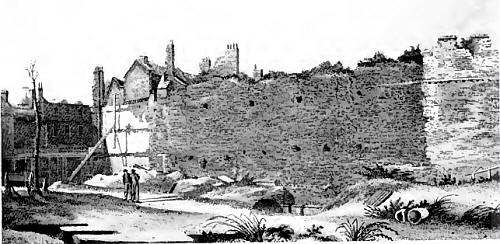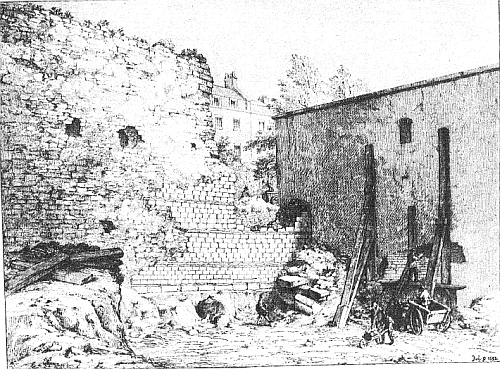

Search london history from Roman times to modern day
Roman London - the London wall
These pages are based on a "Royal Commission On Historical Monuments 1834" - actually it is 1928; which is in the public domain.
A mapping of the area is always good, modern day compared to pre-1900 maps from the NLS site
(3). Trinity Place, South. A length of about 50 feet of the town-wall is still
standing here to a height of about 15 feet. The internal face is open to view,
and appears to be entirely of mediaeval construction with the possible exception
of the lowest visible courses of squared rag-stone which may be of Roman date.
An engraving in Roach Smith’s Illustrations shows the Roman work still surviving
on the external face to a considerable height. It consists above the plinth of
four courses of squared rag-stone, a triple bonding-course of brick, six courses
of rag, a double bonding-course, five courses of rag, a second double
bonding-course and seven courses of rag ; above this point the face has gone and
the wall is perhaps mediaeval.
Between this point and Tower Hill a considerable stretch of the wall is
incorporated in a warehouse and other buildings. The external face is visible in
places and appears to be of mediaeval date. Projecting on to Tower Hill is a
narrow tenement which, no doubt, stands on the Roman wall.

Remains of London Wall, near Postern row in 1818

Town Wall and Bastion, Trinity place, from a sketch 1852
And Last updated on: Wednesday, 02-Oct-2024 12:13:15 BSTTrying to avoid privacy and cookie settings overwriting content